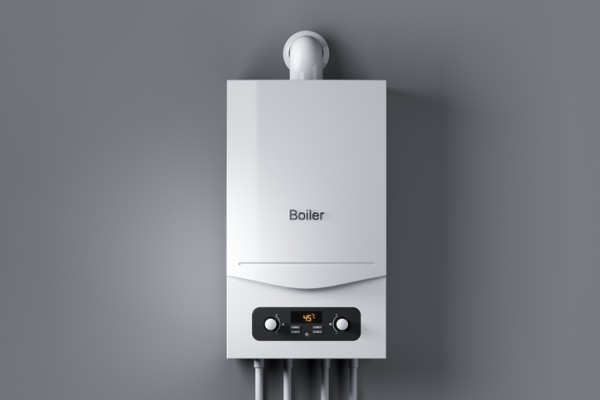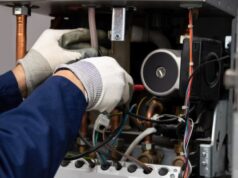
Hot water is a household essential — for showers, cooking, cleaning and comfort. But not all systems are created equal. Choosing the right type of hot water system can significantly affect your energy bills, sustainability footprint and day-to-day performance.
From traditional electric tanks to solar-boosted heat pumps, Australian homes have several hot water options to suit different budgets, climates and household sizes. Understanding the pros, cons and energy ratings of each system will help you make the most informed choice.
Storage vs continuous flow systems
Hot water systems fall into two main categories:
Storage systems
These heat and store water in an insulated tank, ready for use. Once the stored hot water is used up, the system takes time to reheat a fresh supply. Common in older homes or for households with high water use.
Continuous flow systems (instantaneous)
These heat water on demand, so there’s no tank — and no running out of hot water. Ideal for smaller households or homes with limited space. They’re compact, energy-efficient and deliver endless hot water when correctly sized.
1. Electric hot water systems
Electric systems are one of the most common and affordable options in Australia. They come in both storage and continuous flow types.
Storage
- Heats water with an electric element inside a tank.
- Typically cheaper to buy but more expensive to run.
- Can be connected to off-peak electricity tariffs to reduce costs.
- Not considered energy-efficient under modern standards.
Instantaneous
- Smaller and wall-mounted.
- Heats water only as needed.
- Uses more energy per litre, but avoids standby heat loss.
➡ Learn more: Hot water systems – key considerations
2. Gas hot water systems
Gas systems are ideal for homes with mains gas connections. They’re generally cheaper to run than electric systems and can provide fast heating, even during high demand.
Storage
- Uses a gas burner to heat water in a tank.
- Reliable and works during blackouts.
- Can lose heat through the tank when not in use.
Continuous flow
- Very efficient and compact.
- Delivers hot water only when you turn on a tap.
- May require upgrades to your gas line if your home wasn’t designed for it.
➡ Related: How to choose the right hot water system
3. Solar hot water systems
Solar systems use rooftop collectors to absorb heat from the sun and warm your water. These systems are more expensive to install but offer significant savings on running costs.
There are two main types:
- Roof-mounted systems: The collector panels and tank sit on the roof.
- Split systems: The collectors are on the roof and the tank is on the ground.
Most solar systems include a booster — either electric or gas — to ensure hot water is available during cloudy days or high-demand periods.
✅ Great for long-term energy savings
✅ Eligible for government rebates and incentives
✅ Works best in sunny regions
➡ Related: Rebates for solar hot water
4. Heat pump hot water systems
Heat pumps are a highly efficient electric option that work like a reverse fridge — they extract ambient heat from the air and use it to warm water in a tank.
- Very energy-efficient in mild or warm climates
- Can be noisy, so location matters
- Slower to heat than gas or electric systems, but cheaper to run
- May be eligible for rebates
These systems are a good option for replacing electric storage tanks, especially in homes without gas or solar.
Comparing costs and efficiency
| System type | Upfront cost | Running cost | Efficiency | Best for |
|---|---|---|---|---|
| Electric (storage) | Low | High | Low | Budget installs, low usage homes |
| Electric (instant) | Medium | High | Medium | Small households |
| Gas (storage) | Medium | Medium | Medium | Medium to large families |
| Gas (instant) | Medium | Low–medium | High | Continuous use, limited space |
| Solar (with boost) | High | Very low | Very high | Sunny climates, long-term savings |
| Heat pump | High | Low | Very high | Mild climates, sustainable homes |
What size hot water system do you need?
Choosing the right size is just as important as choosing the type. A system that’s too small will run out of water, while an oversized one wastes energy and money.
Consider:
- Number of people in the household
- Peak usage times (e.g. morning showers, dishwasher cycles)
- Whether your system is gas, electric or solar
- The climate and location of your home
Energy efficiency and environmental impact
Australia’s Minimum Energy Performance Standards (MEPS) and Life Cycle Assessment (LCA) labels help compare the environmental performance of different systems. Look for high star ratings and solar compatibility where possible.
➡ More info: MEPS and LCA labels
Government rebates and incentives
Rebates are available for eligible hot water upgrades, particularly for:
- Replacing electric storage systems with solar or heat pumps
- Installing systems under energy-saving schemes in your state or territory
Final tips before you choose
- Get quotes from licensed plumbers or energy specialists
- Ask about warranties, installation costs and servicing
- Check the energy source available at your property (gas, solar, electricity)
- Compare brands and models using the Energy Rating website





